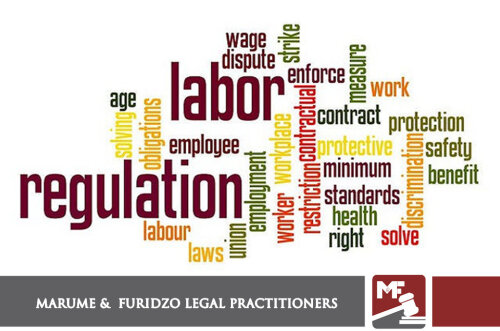Best Domestic Violence Lawyers in Zimbabwe
Share your needs with us, get contacted by law firms.
Free. Takes 2 min.
Free Guide to Hiring a Family Lawyer
Or refine your search by selecting a city:
List of the best lawyers in Zimbabwe
About Domestic Violence Law in Zimbabwe
Domestic violence in Zimbabwe is a significant social issue impacting many families. The government has recognized the severity of this problem and enacted specific legislation to address it. The Domestic Violence Act of 2007 is the primary legal framework in place, offering protection to victims through various legal remedies and mechanisms. This legislation defines domestic violence broadly, including physical, sexual, emotional, verbal, economic, and psychological abuse as punishable offenses.
Why You May Need a Lawyer
If you are experiencing domestic violence or have been accused of such, engaging a lawyer can be crucial for several reasons. Victims may require legal help to obtain protection orders, navigate court processes, and secure their safety. On the other hand, individuals accused of domestic violence may seek legal representation to defend against charges, ensure fair treatment in legal proceedings, and safeguard their rights. Lawyers can also provide valuable advice on the implications of domestic violence laws and offer guidance on legal rights and responsibilities.
Local Laws Overview
The key piece of legislation governing domestic violence in Zimbabwe is the Domestic Violence Act of 2007, which aims to offer protection to individuals subjected to domestic violence. Some critical aspects of this law include:
- **Protection Orders**: Victims can apply for protection orders, which mandate the alleged offender to cease violent actions and maintain distance from the victim.
- **Counseling Services**: The Act provides for counseling and rehabilitation services for both victims and perpetrators.
- **State Accountability**: The government is tasked with raising awareness and facilitating training for relevant stakeholders on domestic violence issues.
- **Criminalization of Domestic Violence**: Specific violent acts within a domestic relationship are criminalized, allowing for legal action against offenders.
Frequently Asked Questions
1. What constitutes domestic violence under Zimbabwean law?
Domestic violence in Zimbabwe includes physical, emotional, sexual, verbal, and economic abuse among other forms of harm done to any person in a domestic relationship.
2. How can I obtain a protection order?
You can apply for a protection order at any magistrate’s court. The process involves submitting an affidavit detailing the abuse, upon which the court may issue an interim order pending a full hearing.
3. Is domestic violence a criminal offense in Zimbabwe?
Yes, acts of domestic violence are criminal offenses and can lead to prosecution under the law.
4. Can I get legal aid for a domestic violence case?
Legal aid is available in Zimbabwe for domestic violence cases through organizations like Zimbabwe Women Lawyers Association (ZWLA) and Legal Aid Directorate.
5. How does the law protect children affected by domestic violence?
The law provides special provisions to safeguard children who are victims or witnesses of domestic violence, including offering them protection orders and counseling services.
6. Are there support services for victims of domestic violence?
Yes, there are several organizations and government services offering support such as counseling, temporary shelter, and legal advice to victims of domestic violence.
7. What are the penalties for perpetrators of domestic violence?
Penalties can vary depending on the nature and severity of the offense, including fines, imprisonment, and mandatory counseling sessions.
8. How can I ensure my safety while legal proceedings are ongoing?
Securing a protection order is a crucial step in ensuring safety. Victims may also seek help from shelters and counseling services for additional support.
9. What is the role of the police in domestic violence cases?
The police have a duty to protect victims, investigate complaints, and enforce protection orders. They are also responsible for referring victims to appropriate support services.
10. Can a protection order be modified or canceled?
Yes, either party can apply to the court to have a protection order varied or canceled if there are changed circumstances.
Additional Resources
For those seeking online resources and support for domestic violence in Zimbabwe, please consider the following:
- **Musasa Project**: An NGO providing counseling and temporary shelter services for women and children.
- **Zimbabwe Women Lawyers Association (ZWLA)**: Offers legal advice and representation for women affected by domestic violence.
- **Legal Aid Directorate**: Provides legal assistance to those who cannot afford a private lawyer.
Next Steps
If you require legal assistance concerning domestic violence in Zimbabwe, consider taking the following steps:
1. **Contact a Legal Professional**: Seek a lawyer experienced in domestic violence cases to discuss your situation confidentially and receive personalized advice.
2. **Explore Legal Aid Options**: If affordability is an issue, contact organizations such as ZWLA or the Legal Aid Directorate for support.
3. **Apply for a Protection Order**: Visit your local magistrate’s court to initiate proceedings for a protection order if you feel at risk.
4. **Access Support Services**: Reach out to local charities and support groups for counseling, temporary shelter, and other support services as you navigate the legal system.
Lawzana helps you find the best lawyers and law firms in Zimbabwe through a curated and pre-screened list of qualified legal professionals. Our platform offers rankings and detailed profiles of attorneys and law firms, allowing you to compare based on practice areas, including Domestic Violence, experience, and client feedback.
Each profile includes a description of the firm's areas of practice, client reviews, team members and partners, year of establishment, spoken languages, office locations, contact information, social media presence, and any published articles or resources. Most firms on our platform speak English and are experienced in both local and international legal matters.
Get a quote from top-rated law firms in Zimbabwe — quickly, securely, and without unnecessary hassle.
Disclaimer:
The information provided on this page is for general informational purposes only and does not constitute legal advice. While we strive to ensure the accuracy and relevance of the content, legal information may change over time, and interpretations of the law can vary. You should always consult with a qualified legal professional for advice specific to your situation.
We disclaim all liability for actions taken or not taken based on the content of this page. If you believe any information is incorrect or outdated, please contact us, and we will review and update it where appropriate.
Browse domestic violence law firms by city in Zimbabwe
Refine your search by selecting a city.

















